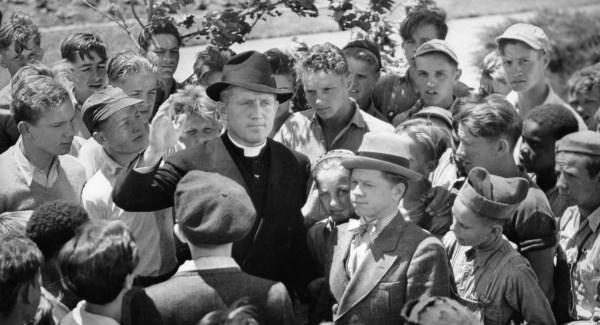NR | 1 h 36 min | Drama, Biopic | 1938
It is a sad commentary on the evils of our times that many people today view orphanages, historically symbols of caring, as instruments of cunning, as if they’re mere facades for hypocritical politicians and celebrities to profit, commercially or sexually, off destitute children. It’s hard to fault such views when even the renowned Boys Town orphanage in Nebraska was linked with a reported scandal in the 1980s.





